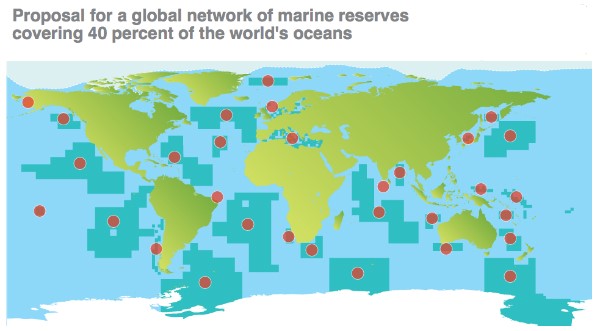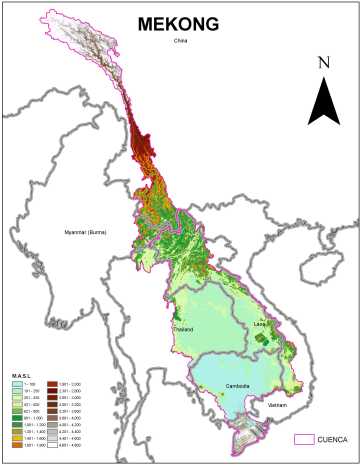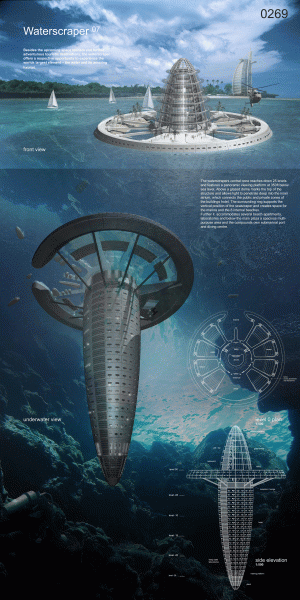April 26, 2014 – We create conservation areas, national parks and wildlife refuges on land. We even create marine reserves to protect coral reefs. And in our cities we assign zones for industrial, commercial and residential use. The idea behind zoning is usage planning and we humans are very good at it. The question is, can we apply it to the global ocean and save it from ourselves as a result?
What would be involved? We would need the countries of the world to agree on the types of zones to create and then apply them to a map such as the one depicted below proposing a global network of marine reserves.
We would also have to agree on zoning standards. For example what defines a marine reserve or what defines an oil and gas exploration zone?
Some countries have attempted on their own to establish coastal ocean zoning but in today’s world with the threat of global warming from greenhouse gases (GHG) and the acidification of marine waters because of that, countries working alone just will not cut it anymore.
Today the Great Barrier Reef off Queensland, Australia, is under threat from coral bleaching and die off. This area has been zoned as a marine park for years and even so Australia can do little to stop a global phenomenon from desolating the coral.
For some the idea of zoning our oceans, the last frontier on our planet, comes across as human hubris. To suggest that we humans have the greater right to determine the future of the marine animals that occupy our world’s oceans points to excessive human self conceit. But the truth is, without international regulation through a global commission on human use of the oceans we will continue to watch this important environment deteriorate.
One of the problems we face is the question of ownership. All countries with coastlines have claimed the oceans immediately adjacent including the resources that can be mined on or beneath the seabed. But for the ocean beyond maritime boundaries, who or what should be in charge? The United Nations to-date has failed as a body in executing a workable global strategy for reducing GHG emissions despite nations signing on to targeted agreements. That’s because the United Nations lacks both the carrot and stick to enforce compliance. So is the United Nations a suitable choice for administering ocean zoning and ensuring that all nations are bound to preserve the marine environment?
In past postings I’ve written about how nations sharing common river systems. If we look at the success or lack thereof of cooperation from river nations both upstream and downstream we may find a working model that can be applied to collective management of our oceans. Unfortunately, however, rivers crossing many nations such as the Mekong in Southeast Asia or the Nile in Africa show that national self-interest trumps the common good.
What’s at stake? Maintaining the biodiversity of the ocean by protecting its species and in particular those identified as threatened by human activity. Mitigating acidification from GHGs. Combating rising sea levels to help island nations and coastal populations most threatened by this. Eliminating marine pollution particularly suspended plastic particles, garbage and toxic spills of chemicals and fossil fuels. Monitoring and mitigating harmful runoff from land sources. Managing all marine food sources for human consumption. Monitoring marine transportation to ensure it complies with all zoning regulation. And sharing the risk and costs across all nations.
Some scientists believe that humanity’s future is the ocean and not space. Robert Ballard of RMS Titanic fame is one of those. He sees the ocean as the next place where we humans will live and work. And he’s not just talking about on the ocean but living in underwater cities where human inhabitants will manage the marine environment from within. In an article witten by Rachel Nuwer, and published by BBC Future in September of 2013, she describes what “life aquatic” might be with humans living at various depths of the ocean (see the Waterscraper depicted below, an ocean equivalent to an apartment building created by Mathias Koester). In this future by spreading human population beyond land we may find the answers to food security and through living in and of the ocean become better stewards of the environment. Humans living in the ocean will demand that industrial activities such as mining and oil exploration be subject to significant oversight. Humans in the ocean dependent on marine food sources will police fish stocks and go after poachers. Humans in the ocean will want surface dwellers to visit as tourists and will ensure that the environment these visitors come to see will be pristine and bio-diverse. Self-interest and survival of those living in the ocean will make zoning the global marine environment happen.















